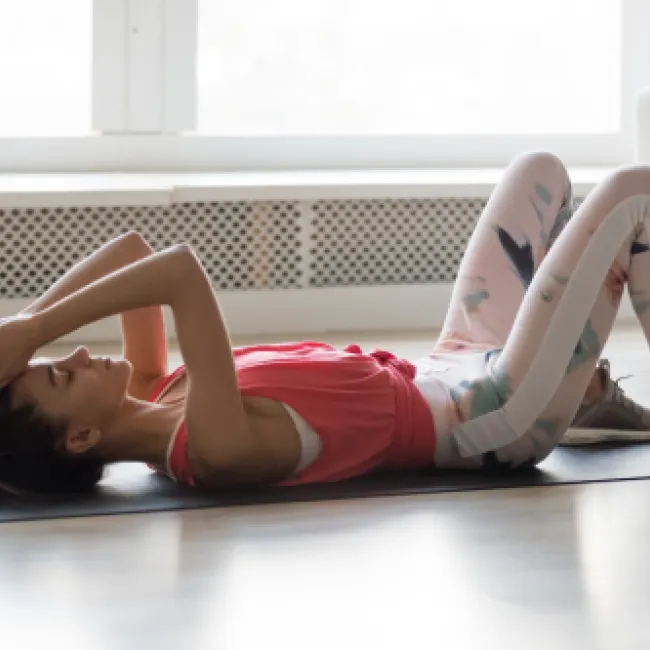
After an infection with Covid-19, some patients report long-lasting health consequences. The complaints that can arise after an infection with the coronavirus are varied. What you need to bear in mind when returning to sport.
What does "Post Covid"/ "Long Covid" mean?
The term "Long Covid Syndrome" (abbreviated to "Long Covid") and "Post Covid Syndrome" (abbreviated to "Post Covid") describe symptoms that persist after infection with Covid-19 and presumably result from the infection. The health problems can also occur after a mild course of the disease. While "long covid" refers to symptoms that persist for at least four weeks after infection, "post covid" refers to symptoms that persist for at least twelve weeks after the disease.
How do I recognise "Post Covid"/ "Long Covid"?
The novel clinical picture generally includes those symptoms that arise from an acute or already overcome covid 19 infection and persist, as well as those that have led to a new health limitation and are considered to be a consequence of a covid 19 disease. Worsening of an existing underlying condition due to covid-19 infection can also be referred to as post covid/long covid. Symptoms may include respiratory, cardiovascular, musculoskeletal, fatigue such as chronic fatigue syndrome, difficulty concentrating and headaches, and even psychological symptoms such as anxiety and depression.
How is "Post Covid"/ "Long Covid" treated?
The range of different symptoms in "post covid"/"long covid" also entails a different and individually adapted treatment approach. Different medical specialities, such as lung specialists, cardiologists, neurologists and sports physicians, deal with the treatments of patients with post or long covid syndrome. In addition, there are special Covid 19 outpatient clinics. To avoid dangerous complications such as myocarditis or cardiac arrhythmias, patients affected by covid 19 should first take a break from sport and then have their physical capacity checked by a doctor before resuming activity. A resumption of sport should always take place under medical supervision and gradually.
Sources:
National Institute for Health and Care Excellence (NICE), Scottish Intercollegiate Guidelines Network (SIGN) and Royal College of General Practitioners (RCGP) (2022). COVID-19 rapid guideline: managing the long-term effects of COVID-19. Letzter Online-Zugriff am 15.02.2023 unter: https://www.nice.org.uk/guidance/ng188/resources/covid19-rapid-guideline-managing-the-longterm-effects-of-covid19-pdf-51035515742
Koczulla, A. R., Ankermann, T., Behrends, U., Berlit, P., Berner, R., Böing, S., Brinkmann, F., Frank, U., Franke, C., Glöckl, R., Gogoll, C., Häuser, W., Hohberger, B., Huber, G., Hummel, T., Köllner, V., Krause, S., Kronsbein, J., Maibaum, T., Otto-Thöne, A., Pecks, U., Peters, E. M. J., Peters, S., Pfeifer, M., Platz, T., Pletz, M., Powitz, F., Rabe, K. F., Scheibenbogen, C., Schneider, D., Stallmach, A., Stegbauer, M., Tenenbaum, T., Töpfner, N., von Versen-Höynck, F., Wagner, H., Waller, C., Widmann, C. N., Winterholler, C., Wirtz, H. & Zwick, R. (2022). AWMF S1-Leitlinie Long/ Post-COVID. AMWF online. Letzter Online-Zugriff am 15.02.023 unter: https://register.awmf.org/assets/guidelines/020-027l_S1_Post_COVID_Long_COVID_2022-08.pdf